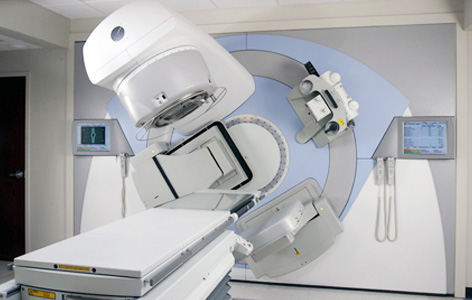
When administering radiation therapy, specialists must create a treatment plan that ensures that the tumour is targeted, while healthy tissue is spared.
When tumours are located close to organs that are susceptible to radiation damage, such as the brain or lungs, a complex form of radiotherapy known as intensity modulated radiotherapy (IMRT) is used. In IMRT, the size and intensity of multiple beams of radiation are varied to better target the tumour. The drawback to IMRT is that it can take up to several hours to create treatment plans.
Dr. Thomas Purdie (PM Cancer Centre Clinical Researcher and Techna Affiliated Faculty) devised a solution to this problem by taking advantage of the latest advancements in machine learning.
Machine learning involves using existing information to create a model that can then make informed decisions in new situations. In this case, Dr. Purdie's team used 149 previously approved clinical treatment plans to create a model capable of predicting clinically acceptable angles for radiation beams. The computational tool was then tested on 27 new treatment scenarios.
Dr. Purdie explains, "The beam selection process only took a few minutes to complete using the method developed. Furthermore, over ninety percent of the plans were approved as clinically acceptable by three experts. The refinement and widespread use of this method could help conserve human resources while ensuring treatment consistency."
This work was supported by Philips Healthcare, the Ontario Consortium for Adaptive Interventions in Radiation Oncology, the Collaborative Health Research Projects Program, the Canadian Institutes of Health Research, the Natural Sciences and Engineering Research Council of Canada, and The Princess Margaret Cancer Foundation.
Automatic learning-based beam angle selection for thoracic IMRT. Amit G, Purdie TG, Levinshtein A, Hope AJ, Lindsay P, Marshall A, Jaffray DA, Pekar V. Medical Physics. 2015 Apr. [Pubmed abstract]




